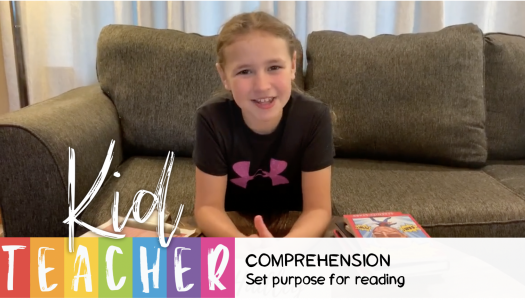A Coaching Menu
Join Our Community
Access this resource now. Get up to three resources every month for free.
Choose from thousands of articles, lessons, guides, videos, and printables.
When I first began the supportive role of literacy coach, I wondered how I might best begin working with teachers. Another coach in our district gave me two invaluable pieces of advice:
- Let everyone know how you can support them.
- Start with people who want you.
.jpg)
Inviting another adult into our rooms can be disconcerting. I found that providing teachers with a menu of options really helped get my foot in the door, and each partnership ended up being enjoyable and rewarding.
I sent a note out in the fall, winter, and spring. The responses helped me focus my attention, gather helpful resources, and plan my schedule.
Following is the first note I sent. Use it as a springboard for your own menu of choices. And check out Do’s and Don’ts for Literacy Coaches: Advice from the Field by Rita Bean and Diane DeFord for some excellent advice to coaches.
______________________________________________________________________
Dear Colleagues,
The greatest thing about being a coach here is that I work with amazing people and am not here to “fix” anybody. It is a pleasure and a privilege to team with you, helping you to plan, reflect, and refine your practice. My role is to help you reach your goals for students.
Here is a menu of options of how we might collaborate together. Circle all that interest you and return this to my mailbox so I can get you on my coaching calendar.
-
Launch Daily 5 (building behaviors of independence, increasing stamina, choosing good-fit books).
-
Teach CAFE lessons (focus lessons that relate to student needs and match current brain research).
-
Help analyze reading and writing assessments to set goals and determine next steps.
-
Set up a conferring notebook, model one-on-one conferring, observe your conferring sessions and provide feedback to help you refine your conferring skills.
-
Plan and teach close reading lessons.
-
Co-plan for an upcoming literacy skill or strategy lesson.
-
Engage in reflective conversation about what’s on your mind regarding your students or your classroom.
-
Provide nonevaluative observations/feedback. This is simply a “Come watch me and let me know what you see” invitation.
-
Attend and partner with you in a grade-level team meeting.
-
Cover your class for an hour so you can observe one of your teammates or colleagues.
If you are interested in working together on something else, let me know. I don’t promise to have expertise, but I can promise we’ll have fun figuring it out together.
Lori
Your name______________________
Comments:




